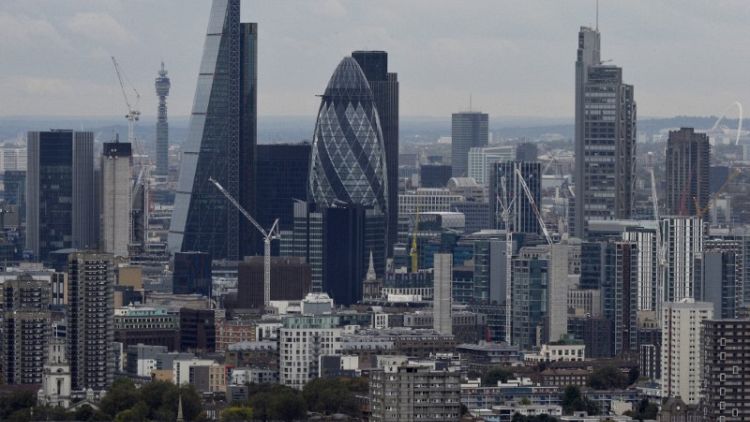By Andy and Bruce
LONDON, Dec 5 (Reuters) - The approach of a still uncertain Brexit clobbered British services firms last month, leaving the economy at risk of contracting, a survey showed on Wednesday.
The IHS Markit/CIPS UK Services Purchasing Managers' Index (PMI) fell to 50.4 from 52.2 in October, the weakest reading since just after the 2016 Brexit vote and below all forecasts in a Reuters poll of economists.
Watched closely by the Bank of England, the PMI suggested Britain's economy is on track for quarterly growth of just 0.1 percent in the final three months of 2018, a sharp slowdown from 0.6 percent in the third quarter.
Slowing consumer spending and Brexit uncertainty hobbled services firms in November, data firm IHS Markit said.
Prime Minister Theresa May's Brexit plan has been agreed with the EU but faces deep opposition in parliament where it faces a vote on Dec. 11, raising the risk of a no-deal Brexit shock to the economy in less than four months' time.
Optimism among services companies, which account for the bulk of Britain's economic output, fell to its second-lowest level since the depths of the financial crisis, the PMI showed.
Overall the figures chimed with other surveys showing sliding confidence among both consumers and businesses.
"A sharp deterioration in service sector growth leaves the economy flat-lining in November as Brexit concerns intensified," Chris Williamson, IHS Markit's chief economist, said.
BoE officials are keeping a close eye on business and consumer confidence for signs that uncertainty over Brexit is aggravating the slowdown in the economy since the 2016 referendum.
Companies only managed to eke out their scant growth in November by working through backlogs at the joint-fastest pace since 2009 rather than through new orders, which grew at one of the weakest rates since the financial crisis.
"As such, unless demand revives, a slide into economic decline at the turn of the year is a distinct possibility," Williamson said.
The services PMI fell below the 50 mark in July 2016, just after the Brexit vote, spurring the BoE into cutting interest rates to a new record low.
However, BoE Governor Mark Carney and other officials at the central bank have warned investors not to count on a cut to borrowing costs if Britain's economy suffers the potentially inflationary shock of leaving the EU without a transition deal.
The all-sector PMI, which includes the less downbeat manufacturing and construction surveys published earlier in the week, fell to 51.0 from 52.2, similarly at the lowest level since July 2016.
Slightly faster growth in employment an easing of cost pressures represented the only plus points.
Businesses will be watching a series of votes in parliament next Tuesday which, if lost by Prime Minister May, could cast her Brexit plans into further disarray.
"Clarity in relation to Brexit arrangements is ... urgently needed to help ensure the current stalling of growth does not translate into a downturn," Williamson said.
(Reporting by Andy Bruce; Editing by Hugh Lawson)



